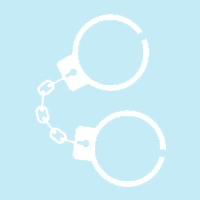Human rights
Human rights are basic rights that belong to all of us simply because we are human. They embody key values in our society such as fairness, dignity, equality and respect.
They are an important means of protection for us all, especially those who may face abuse, neglect and isolation. Most importantly, these rights give us power and enable us to speak up and to challenge poor treatment from a public authority.
- Which rights are most relevant to me?
- Article 2: The right to life
- Article 3: Prohibition of torture, inhuman and degrading treatment
- Article 5: Right to liberty
- Article 8: The right to respect for private and family life, home and correspondence
- Article 14: The right not to be discriminated against
- Resources
Which rights are most relevant to me?
All human rights are potentially relevant to you; however, it is likely that you will find some more significant to you than others.
Article 2: The right to life
I have the right to have my life protected and not to have it taken away by others.
What does this right mean?
Public authorities must:
- take appropriate steps to protect a person’s life e.g. ensure adequate laws to protect you from others who might want to take away your life
- not take away a person’s life, except in a few very specific and limited circumstances.
It does not mean there is a right to medical treatment in all circumstances.
If someone dies as a result of the state’s use of force, or the state’s failure to protect life, there should be an effective official investigation into what happened.
How could this be relevant to me or other older people?
- I should not be refused lifesaving medical treatment because of my age.
- I need to be given enough to eat and drink whilst I am in the care of an institution.
- I should not have a ‘do not resuscitate’ order placed on my file without my or, if I cannot express my own view, my family’s consent.
- I should not be discharged from hospital if I am unable to look after myself, if there is no care in place to support me and if my life would be at risk as a result.
- In the event that my death is suspicious or unexplained, an effective inquest must be carried out

This right put into action
Families of those who died at Mid Staffordshire hospital were able to use human rights arguments to secure compensation for horrific treatment suffered by their relatives, such as not being given support to eat or drink or being left in soiled sheeting for hours.
In many cases they were able to argue that poor treatment and neglect caused the death of their loved ones and that this was a breach of their right to life. They were also able to use the investigative duty included within the right to life, to secure a public inquiry into their relatives’ deaths.
This inquiry also made recommendations for preventing this kind of treatment in the future.
Source: UK Human rights blog
Article 3: Prohibition of torture, inhuman and degrading treatment
I have the right not to be treated inhumanely, abused, degraded or humiliated.
What does this right mean?
- It must be very severe treatment to reach the threshold of Article 3, however whether treatment meets this threshold will depend on the facts of the individual case.
- Torture is severe physical or mental harm inflicted by the state.
- Inhuman treatment means treatment causing severe mental or physical suffering.
- Degrading treatment means treatment that is grossly humiliating and undignified.
- Public authorities also have a positive duty to try and prevent others from treating you in an inhuman or degrading way.
- Inhuman or degrading treatment does not have to be inflicted deliberately.
How could this be relevant to me or other older people?
- I should not be abused in any way.
- I should be protected from physical or mental abuse e.g. when in hospital or a care home.
- I should be supported to eat or drink if I am not able to do this myself.
- Excessive force should not be used to restrain me.
- I should not be neglected e.g. left in soiled, unchanged sheets for long periods.
- I should not experience poor conditions such as lack of access to healthcare in institutional settings such as prisons or care homes.
- Severely discriminating against me because of racism could amount to degrading treatment.
- Where I raise a real concern about inhuman or degrading treatment, a public authority must investigate it.

This right put into action
77-year-old Simon had a heart attack while he was in prison awaiting sentence for breaching health and safety regulations.
Simon was rushed to hospital and for the next 14 days he was kept in handcuffs. Even while he was using the toilet and shower, Simon was chained to a prison officer.
He took action against this treatment and a judge ruled that it violated his human right not to be subjected to inhuman and degrading treatment. The judge said that being handcuffed while in his own room in a hospital ward with only one door was humiliating and an affront to Simon’s dignity.
Source: Equally Ours
Article 5: Right to liberty
I have the right not to lose my liberty, except for a very good reason.
What does this right mean?
Public authorities must:
- not deprive anyone of their liberty except in certain, predefined circumstances such as following a conviction by a criminal court or if someone lacks mental capacity to consent to care or treatment and it is in their best interests to deprive them of their liberty
- have an appropriate, legally based procedure in place to protect an individual’s rights.
Any deprivation of liberty must be lawful, proportionate and continue for no longer than is necessary.
For a person to be classed as being deprived of their liberty, they must be subject both to continuous supervision and control and not be free to leave.
Under the Mental Capacity Act 2005, there are procedures in place to make sure that people’s rights to liberty are protected if a public authority decides that someone does not have capacity to consent to necessary care or treatment.
These safeguards, which have been developed by the courts, are called Deprivation of Liberty Safeguards (DOLS).
DOLS set out a procedure for care homes and hospitals to obtain authorisation to deprive someone of their liberty. Without that authorisation the deprivation of liberty will be unlawful. These safeguards are intended to stop individuals from being deprived of their liberty unless it is in their best interests to protect them from harm and there is no other less restrictive alternative.
How could this be relevant to me or other older people?
- I should not be locked in a room, cell or have any extreme form of restriction placed on my movement except in certain strict circumstances.
- I should not be detained unlawfully.
- If I lack capacity to give consent I should not be sent to a care home or hospital unless the DOLS procedure has been followed.
- If I have been detained following DOLS there should be a periodic independent check to ensure that this continues to be in my best interests.
- If I am arrested, I should be informed promptly, in a language which I understand, of the reasons for my arrest and the charge against me.

This right put into action
A 91-year-old man was removed from his home in his pyjamas by the local authority and placed in a locked dementia unit. It was not clear that he lacked capacity at the time. He was detained unlawfully in the care home for 17 months without any DOLS application being made to safeguard his rights or hear his views.
Following legal action from a concerned friend, the man eventually returned home with a care package and £60,000 damages. The case was settled on the basis that he had been unlawfully deprived of his liberty.
The Judge noted that no consideration had been given to the least restrictive option of the man being supported to live at home in accordance with his wishes.
Source: Equally Ours
Article 8: The right to respect for private and family life, home and correspondence
It is my right to live without harassment and with respect for my private, personal and family life.
What does this right mean?
This right has a very wide scope, protecting four interests:
- Private life – in addition to personal privacy this covers issues such as personal choices, relationships, physical and mental wellbeing, access to personal information and participation in community life.
- Family life – interpreted broadly, depends on circumstances and existence of close personal ties. It does not just cover blood or formalised relationships.
- Home – this is not a right to housing, but a right to respect for a home someone already has. It also includes the right to enjoy your home without interference from others.
- Correspondence – this covers all forms of communication including phone calls, letters, text messages, emails etc.
This is a qualified right and may be restricted if the restriction has a basis in law, pursues a legitimate aim as set out in the Human Rights Act and is necessary and proportionate. This means that, in some circumstances, a public authority may be able to interfere with your right to a private and family life in order to protect public safety or the freedoms of others.
How could this be relevant to me or other older people?
- I should be supported to stay in my home, or with my family or partner, if I choose to.
- I should be able to access my local GP.
- I should be able to make choices about my daily life.
- I should be able to participate in social and recreational activities.
- I should be able to have a fulfilling and active life and be able to make choices even if I am in a care home or hospital.
- My personal information should be confidential.
- I should be able to have access to my personal records.
- My personal and sexual relationships should be respected.

This right put into action
A 79-year-old man with dementia, who was unable to make decisions about his care, lived at home with his partner and her son. He was admitted to hospital for a mental health assessment and when he was ready for discharge, a dispute emerged between his partner who wanted him to return home, and health authorities who believed he should be admitted permanently to a care home.
A judge ruled that forcing the man to be sent to an institution would be depriving him of his human right to family life with his partner. Though he recognised the man’s physical and medical needs might be better served in a care home, the judge emphasised that there is more to human life than just physical needs.
The judge said the man’s emotional needs had to be taken into account in order to serve his best interests, and that meant going home to his family.
Source: Equally Ours
Article 14: The right not to be discriminated against
I have the right not to be discriminated against because of who I am – this might include because of my gender, sexuality, age, nationality or religion.
What does this right mean?
Public authorities must:
- not discriminate against you in relation to any of the rights contained in the European Convention.
It is not a free standing right and must be linked to another convention right.
This means that you can use this article if you can show that, within the scope of the other articles such as Article 2,
3, 5 and 8, you have been discriminated against on a non-exhaustive list of grounds such as age, disability, sexual orientation and race.
How could this be relevant to me or other older people?
- I should not be refused medical treatment simply because of my age.
- If I do not speak English I should be provided with an interpreter, so that I can make choices about my health or social care.
- I should not be bullied and treated badly in my care home by the residents or staff just because I am gay.
- I should not be discriminated against at work just because of my age.

This right put into action
When 72-year-old Mr S heard that the HMRC (Her Majesty’s Revenue and Customs) was moving to online only VAT returns he applied for an exemption even before they’d sent the letter.
In the years of running a small but successful business selling electronic equipment over the phone, he has always been amongst the first to present his tax returns. Mr S knows how to use a computer, but his arthritis makes it very tricky for him – the impact on his hands means he can’t use even his adapted large keyboard easily and his poor eyesight makes seeing the screen very difficult.
When the VAT office refused to exempt Mr S and two other taxpayers in a similar position from online filing they felt that their rights were being undermined and decided to challenge the decision. It was the inflexibility of the new rules which led to them winning the challenge – in a tax court, the judge found that the HMRC should have made provision for people who would find it difficult to comply with the new rules and their failure to do so was a breach of human rights.
Source: Equally Ours
Resources
Our Rights Our Voices toolkit
As part the Our Rights Our Voices project, we produced this toolkit. It breaks down and explains human rights legislation and uses up-to-date case studies to show how people have used these rights in reality.
